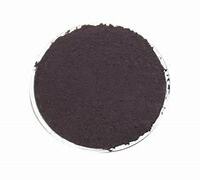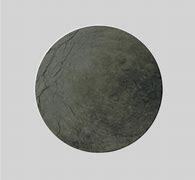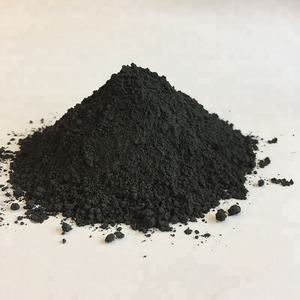Overview of Boron carbide powder for target sputtering
Boron Carbide (B4C) is a ceramic compound renowned for its exceptional hardness and wear resistance, ranking just below diamond and cubic boron nitride in terms of hardness. Composed of boron and carbon atoms arranged in a covalently bonded crystal structure, it exhibits unique physical and chemical properties that make it highly valuable in various industrial and military applications. Boron carbide’s high melting point, low density, neutron-absorbing capability, and extreme toughness further distinguish it among advanced materials.
Features of Boron carbide powder for target sputtering
-
Extreme Hardness: With a Mohs hardness of around 9.3 to 9.5, boron carbide is one of the hardest materials known, surpassed only by diamond and cubic boron nitride.
-
Lightweight: Despite its hardness, boron carbide has a relatively low density of about 2.52 g/cm³, which makes it an attractive material for lightweight armor systems.
-
Thermal Stability: It possesses excellent thermal stability, maintaining its properties up to temperatures around 2,000°C, making it suitable for high-temperature applications.
-
Neutron Absorption: Boron carbide is a potent neutron absorber due to its boron content, making it ideal for nuclear shielding and control rods.
-
Chemical Resistance: Resistant to most acids and alkalis, except for hydrofluoric acid and hot concentrated alkaline solutions, ensuring durability in corrosive environments.
-
Abrasion Resistance: Its exceptional wear resistance makes it suitable for applications where friction and abrasion are prevalent, such as sandblasting nozzles.

(Boron carbide powder for target sputtering)
Parameters of Boron carbide powder for target sputtering
Boron carbide powder is typically used as a carbon source in high-intensity electron bunching (HEEB) applications such as atomization and depositing. It has been found to be effective at producing precise atomic peaks and requires a specific concentration of B2C powders that are well-capped with atoms.
The choice of powder material depends on the specific application, but some common options include:
* Transition metal carbides: B2C powders commonly use transition metals like Chrome, MoSb, and GeO instead of iron.
* Hybrid carbides: These materials combine elements from different carbide groups, providing a broader range of electron-beam-based applications.
* Group IV-bonded carbides: These materials have strong group IV bonds between atoms, making them ideal for creating precise particle hits and high-intensity beam treatments.
* Electron-etch powder: This type of powder uses a high-energy electron beam to vaporize the material and produce impurities.
*ization powder: The preferred material for atomization is B2C powders, which have a high melting point, high work-life, and low density.
When choosing a powder, it’s important to consider factors such as the desired resolution of the particle hit, the quality of the particles, and the energy budget. Additionally, a combination of different powders can also provide a better surface finish for the electronic device being processed.

(Boron carbide powder for target sputtering)
Applications of Boron carbide powder for target sputtering
-
Armor Systems: Widely used in body armor, vehicle armor, and bulletproof vests due to its lightweight and superior protection capabilities.
-
Nuclear Applications: As control rods and shielding material in nuclear reactors because of its neutron absorbing properties.
-
Abrasive and Cutting Tools: In grinding wheels, polishing powders, and cutting tools due to its hardness and wear resistance.
-
Industrial Nozzles: For sandblasting and water jet cutting applications where resistance to wear and erosion is critical.
-
Military and Defense: As a component in armor-piercing projectiles and defensive systems.
Company Profile
MyCarbides is a trusted global chemical material supplier & manufacturer with over 12-year-experience in providing super high-quality carbides and relative products.
The company has a professional technical department and Quality Supervision Department, a well-equipped laboratory, and equipped with advanced testing equipment and after-sales customer service center.
If you are looking for high-quality carbide materials and relative products, please feel free to contact us or click on the needed products to send an inquiry.
Payment Methods
L/C, T/T, Western Union, Paypal, Credit Card etc.
Shipment
It could be shipped by sea, by air, or by reveal ASAP as soon as repayment receipt.
FAQs of Boron carbide powder for target sputtering
Q: Is Boron carbide powder for target sputtering toxic?
A: Pure boron carbide is generally considered safe to handle. However, during machining or grinding, dust inhalation can be a concern, requiring proper ventilation and protective equipment.
Q: Can Boron carbide powder for target sputtering be machined?
A: Due to its extreme hardness, machining boron carbide is difficult and requires specialized techniques and diamond tooling. Grinding, EDM (Electrical Discharge Machining), or laser cutting are common methods.
Q: How does Boron carbide powder for target sputtering compare to tungsten carbide in terms of hardness?
A: Boron carbide powder for target sputtering is harder than tungsten carbide, with a Mohs hardness of around 9.3 to 9.5 compared to tungsten carbide’s 8.5 to 9.
Q: What is the primary use of Boron carbide powder for target sputtering in the military sector?
A: Boron carbide powder for target sputtering is primarily used in the military for body armor, armored vehicles, and as a component in armor-piercing ammunition due to its combination of hardness, light weight, and ballistic performance.
Q: Can Boron carbide powder for target sputtering be used in high-temperature applications?
A: Yes, Boron carbide powder for target sputtering maintains its structural integrity and properties up to very high temperatures, making it suitable for use in extreme heat environments such as furnace linings and high-temperature ceramics.

(Boron carbide powder for target sputtering)





